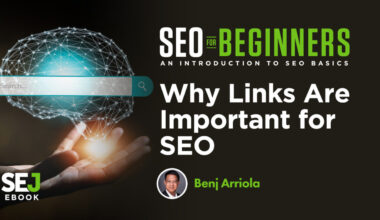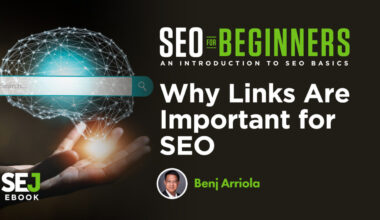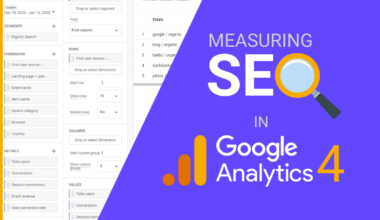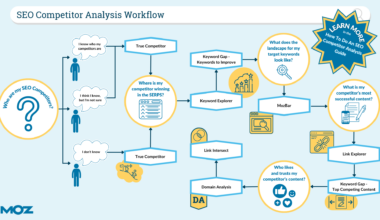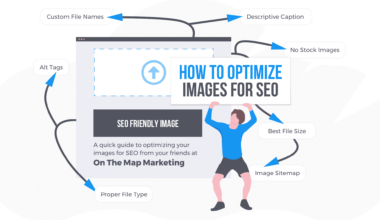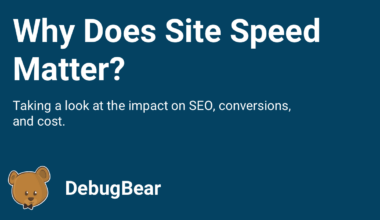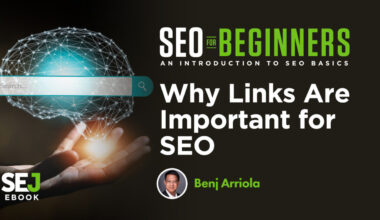Introduction to the Importance of Social Media for SEO
As the digital landscape continually evolves, businesses need to find innovative ways to stand out from the competition. One way to achieve this is by leveraging social media to improve their search engine optimization (SEO) strategy.
Social media and SEO are two important components of a successful digital marketing campaign. While they may seem different, they are intertwined in more ways than one. Social media platforms such as Facebook, Twitter, Instagram, and LinkedIn provide businesses with a unique opportunity to reach a broader audience and enhance their online presence.
According to a report by Hootsuite, social media is the second most effective way to drive traffic to a website, just behind organic search. This highlights the importance of social media in improving website visibility and driving traffic to your website.
Social media also provides businesses with an opportunity to build quality backlinks to their site. Backlinks are links that point to your website from other sites. The number and quality of backlinks are a critical factor in determining a website’s ranking on search engines.
By regularly sharing high-quality content on social media platforms, businesses can attract other websites to link back to their content. This can increase the number of backlinks to their site, which can lead to higher search engine rankings.
Another way social media can help improve SEO is by boosting engagement and social signals. Social signals refer to the likes, shares, and comments that a piece of content receives on social media platforms. Search engines consider social signals as a measure of a website’s relevance and popularity.
By creating engaging content that is shared and liked by a broad audience, businesses can improve their social signals and boost their search engine rankings.
In summary, social media is a powerful tool that businesses can use to improve their SEO strategy. By enhancing website visibility, building quality backlinks, driving website traffic, and boosting engagement and social signals, businesses can improve their online presence and stand out from the competition.
Enhancing Website Visibility through Social Media
Social media platforms offer businesses a unique opportunity to enhance their website’s visibility. By using social media to promote their website, businesses can increase their online presence and reach a broader audience. Here’s how to use social media to enhance website visibility:
1. Share High-Quality Content
Sharing high-quality content on social media platforms can attract an audience to your website. The content should be relevant, informative, and engaging. If the audience finds your content valuable, they are more likely to visit your website to learn more.
2. Use Hashtags
Hashtags are a great way to increase the visibility of your content on social media platforms. By using relevant hashtags in your posts, you can reach a broader audience interested in the topic you are discussing. Make sure to research relevant hashtags before using them.
3. Engage with Your Audience
Engaging with your audience on social media can help increase your website’s visibility. Responding to comments and messages can build a relationship with your audience, leading to increased website traffic.
4. Collaborate with Influencers and Other Businesses
Collaborating with influencers and other businesses on social media can help increase your website’s visibility. Influencers and businesses with a large following can share your content, leading to increased website traffic.
5. Use Social Media Advertising
Social media advertising can help increase your website’s visibility by targeting specific audiences interested in your products or services. Platforms like Facebook and LinkedIn offer advertising options that allow you to target specific demographics.
In conclusion, social media can enhance a website’s visibility by sharing high-quality content, using hashtags, engaging with the audience, collaborating with influencers, and using social media advertising. By implementing these strategies, businesses can increase their online presence and reach a broader audience.
Building Quality Backlinks with Social Media
Backlinks are a critical factor in determining a website’s ranking on search engines. Websites with a higher number of quality backlinks are more likely to rank higher on search engine results pages (SERPs). Social media platforms provide businesses with an opportunity to build quality backlinks to their site. Here’s how to use social media to build quality backlinks:
1. Share High-Quality Content
Sharing high-quality content on social media platforms can attract other websites to link back to your content. The content should be informative, relevant, and engaging. If other websites find your content valuable, they are more likely to link back to your website.
2. Reach Out to Influencers and Other Websites
Reaching out to influencers and other websites can help increase the number of backlinks to your site. Influencers and websites with a large following can share your content, leading to increased backlinks.
3. Participate in Online Communities
Participating in online communities can help increase the number of backlinks to your site. By engaging with other members of the community and sharing your content, you can attract other websites to link back to your site.
4. Use Social Bookmarking Sites
Social bookmarking sites like Reddit and Digg can help increase the number of backlinks to your site. By submitting your content to these sites, you can attract other users to link back to your site.
5. Create Infographics
Creating infographics can help increase the number of backlinks to your site. Infographics are highly shareable and can attract other websites to link back to your site.
In conclusion, social media can help businesses build quality backlinks to their site by sharing high-quality content, reaching out to influencers and other websites, participating in online communities, using social bookmarking sites, and creating infographics. By implementing these strategies, businesses can increase the number of backlinks to their site, leading to higher search engine rankings.
Utilizing Social Media to Improve Website Traffic
Social media is an excellent tool for driving traffic to your website. By sharing high-quality content on social media platforms, businesses can attract a broad audience to their website. Here are some tips on how to utilize social media to improve website traffic:
1. Share Blog Posts and Articles
Sharing your blog posts and articles on social media platforms can help increase website traffic. Make sure to share high-quality content that is relevant to your audience. Include a link to your website in the post so that the audience can easily find and visit your site.
2. Use Eye-Catching Visuals
Using eye-catching visuals like images and videos in your social media posts can attract more clicks and shares. Make sure the visuals are high-quality and relevant to the content you are sharing. Including visuals can increase engagement and lead to increased website traffic.
3. Run Contests and Giveaways
Running contests and giveaways on social media can help increase website traffic. Encourage your audience to participate in the contest or giveaway by visiting your website and taking a specific action, such as filling out a form. This can help increase website traffic and generate leads.
4. Use Social Media Ads
Social media advertising can help drive website traffic by targeting specific audiences interested in your products or services. Platforms like Facebook and LinkedIn offer advertising options that allow you to target specific demographics.
5. Utilize Call-to-Action (CTA) Buttons
Including a call-to-action (CTA) button in your social media posts can encourage your audience to visit your website. Make sure to use clear and concise language in your CTA. Examples of CTA buttons include “Learn More” or “Visit Our Website.”
In conclusion, social media can help businesses improve website traffic by sharing blog posts and articles, using eye-catching visuals, running contests and giveaways, using social media ads, and utilizing call-to-action (CTA) buttons. By implementing these strategies, businesses can increase website traffic, generate leads, and improve their online presence.
Boosting Engagement and Social Signals for SEO
Social signals play an essential role in search engine optimization (SEO). Social signals refer to the likes, shares, and comments that your content receives on social media platforms. These social signals are an indicator of how relevant and popular your content is, and search engines use them as a ranking factor. Here are some tips on how to boost engagement and social signals for SEO:
1. Share Engaging Content
Sharing engaging content that resonates with your audience is key to boosting engagement and social signals. The content should be relevant, informative, and entertaining. When your audience finds your content valuable, they are more likely to engage with it and share it with their followers.
2. Encourage Shares and Comments
Encouraging your audience to share and comment on your content can help boost engagement and social signals. You can do this by asking questions, creating polls, or offering incentives for sharing and commenting.
3. Use Social Media Analytics
Using social media analytics tools can help you understand what type of content your audience engages with the most. This information can help you create more engaging content and improve your social signals.
4. Engage with Your Audience
Engaging with your audience on social media can help improve your social signals. Responding to comments and messages can build a relationship with your audience, leading to increased engagement and social signals.
5. Use Visuals
Using visuals such as images and videos in your social media posts can help increase engagement and social signals. Make sure the visuals are high-quality and relevant to the content you are sharing.
6. Collaborate with Influencers
Collaborating with influencers can help increase engagement and social signals. Influencers with a large following can share your content with their audience, leading to increased engagement and social signals.
In conclusion, boosting engagement and social signals is essential for SEO. By sharing engaging content, encouraging shares and comments, using social media analytics, engaging with your audience, using visuals, and collaborating with influencers, businesses can improve their social signals and increase their search engine rankings.
Final Thought: The Future of Social Media and SEO
The future of social media and SEO is exciting and full of endless possibilities. As technology continues to advance, businesses need to adapt to the ever-changing digital landscape to stay competitive. Here are some trends to look out for in the future of social media and SEO:
1. Video Content
Video content is becoming increasingly popular on social media platforms. According to Cisco, by 2022, online videos will make up more than 82% of all consumer internet traffic. Businesses need to incorporate video content into their social media and SEO strategies to stay relevant and engage with their audience.
2. Voice Search
Voice search is becoming more prevalent with the rise of virtual assistants like Siri and Alexa. Businesses need to optimize their content for voice search to ensure their website is easily discoverable by voice assistants.
3. Artificial Intelligence (AI)
AI is transforming the way businesses approach social media and SEO. AI-powered tools can help businesses analyze social media data, optimize content, and personalize the user experience. Incorporating AI into social media and SEO strategies can help businesses stay ahead of the competition.
4. Mobile Optimization
With the rise of mobile devices, businesses need to optimize their website for mobile users. More people are accessing social media platforms and searching for information on their mobile devices. Businesses need to ensure their website is mobile-friendly to improve user experience and increase website traffic.
5. Social Commerce
Social commerce is the integration of social media and e-commerce. Social media platforms like Facebook and Instagram are offering businesses the opportunity to sell products directly on their platform. This trend is expected to continue, and businesses need to consider social commerce as part of their social media and SEO strategies.
In conclusion, social media and SEO are constantly evolving, and businesses need to adapt to stay relevant. Incorporating video content, voice search optimization, AI, mobile optimization, and social commerce into social media and SEO strategies can help businesses stay ahead of the competition and improve their online presence. By staying up-to-date with the latest trends, businesses can position themselves for success in the future of social media and SEO.











